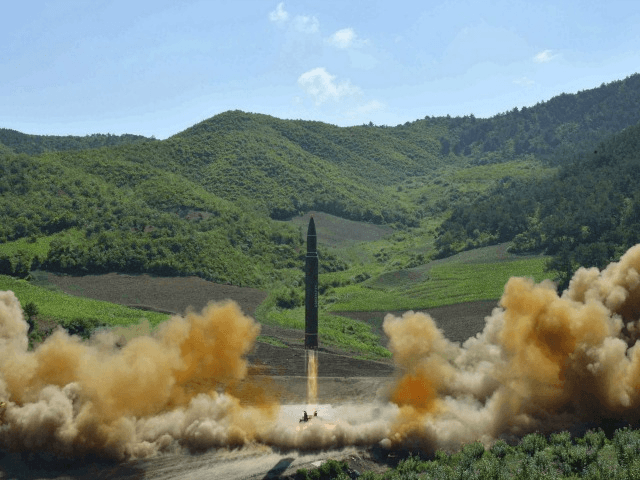South Korean Prime Minister Lee Nak-yon has warned that North Korea may be planning to test an intercontinental ballistic missile (ICBM) on Saturday, the latest in a series of increasingly belligerent military actions that culminated in the nation’s sixth and most powerful nuclear test last weekend.
“Some believe North Korea may launch another intercontinental ballistic missile (ICBM) on the 9th; this time at an ordinary angle,” Lee reportedly said on Thursday, according to CNN. “A special measure is urgently needed to stop their recklessness.”
The report follows a similar one from South Korean intelligence published this week in the nation’s Asia Business Daily, which cited an unnamed intelligence official claiming there was evidence that Pyongyang was planning yet another ICBM test. According to Reuters, the report claimed that South Korean officials had spotted a rocket being moved towards its launch facilities, indicating it may be planning to test its capabilities. Reuters notes that South Korea’s defense ministry did not confirm the report in Asia Business Daily, which takes on heightened significance given Lee’s comments Thursday.
Such an ICBM test would follow the testing of a bomb Pyongyang claimed in its official state media was a hydrogen fusion bomb, a weapon the state newspaper Rodong Sinmun called “perfect” and caused an earthquake the United States Geological Survey rated a 6.3 magnitude. North Korea has threatened to reduce South Korea to “ashes” in its state media since the test, calling its leaders “gangsters” and warning, “If we fire, they will die. This is the inescapable fate of the puppet warmongers.”
Communist dictator Kim Jong-un, both in quotes and through state media, has threatened to attack the United States with a nuclear weapon once the nation’s program is fully developed. While North Korea appeared to possess both nuclear warheads and ICBMs, the program appears to be struggling to miniaturize a warhead so that it fits onto an ICBM and has the reach necessary to strike the U.S. mainland.
Seoul has already begun preparing for the possibility of such a missile targeting South Korean territory, with the government abruptly announcing that it had allowed the installation of new launchers, part of the U.S.-provided Terminal High Altitude Area Defense (THAAD) missile system. President Moon Jae-in, a leftist, had vocally opposed the installation of new THAAD launchers in the country, as neighboring countries like China and Russia have opposed the THAAD system arguing that its extensive reach deep into their territories proved it was not meant to defend from only North Korea.
Seoul’s defense ministry nonetheless confirmed Thursday that it had approved the installation of four more THAAD launchers, according to South Korea’s Joongang Daily. The ministry insisted the installation was “temporary” and necessary to prevent the possibility of civilian death should North Korea fire. “With the deployment of the four launchers, the U.S. military secured the field operation capability of one Thaad battery. We will make necessary preparations to use the capability as soon as the internal procedures are completed on the U.S. side,” defense ministry spokesman Moon Sang-gyun told reporters Thursday.
Reports out of the United Nations suggest that the United States will seek further sanctions against North Korea in response to the nuclear test. In particular, the U.S. and its allies will reportedly seek sanctions limiting North Korea’s oil industry, which would significantly impair the country’s small economy.
While North Korea’s oldest ally and largest trading partner remains China, Russia has emerged as its loudest ally on the world stage. While China has condemned the nuclear attack, and reports indicate Beijing may support further sanctions against the communist Kim regime, Russian officials have objected to new sanctions. Russian president Vladimir Putin has stated he categorically opposes such sanctions, calling them “useless.”

COMMENTS
Please let us know if you're having issues with commenting.